Flash Panel: Central American Democracy in Peril? New Findings from El Salvador in Context
Is the democratic experiment over in El Salvador? With control of the legislative assembly and presidency, the government of El Salvador has recently taken dramatic steps to remove key officials without due process, closed the semi-autonomous body in charge of investigating corruption, and threatened civil society and the media. In response, the US has limited its engagement with the Salvadoran government on key issues, including migration. The University Institute for Public Opinion at the University of Central America (UCA) recently polled Salvadorans on the direction of their country and what these developments mean for migration.
Join us as we explore their findings and what they mean for development and migration in the region with experts from the UCA and the University of Notre Dame.
This event is brought to you by the Pulte Institute for Global Development's Central America Research Alliance (CARA), and the Kellogg Institute for International Studies, both part of the University of Notre Dame’s Keough School of Global Affairs. CARA is a research partnership network focused on evidence-based advocacy.
Speakers
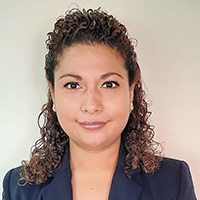
Mtra. Laura Andrade
Director, Instituto Universitario de Opinión Pública
Abogada y notaria, graduada en Ciencias Jurídicas por la Universidad Centroamericana (UCA), cuenta con una maestría en Ciencias Políticas por la misma universidad y con un Diplomado en Estadística aplicada a la investigación. Es directora del Instituto Universitario de Opinión Pública (Iudop). Se ha desempeñado como analista en temas de seguridad y justicia dentro de este Instituto y como coordinadora de estudios de opinión a nivel nacional. Cuenta con experiencia en proyectos de observación electoral y en investigaciones referidas a la inseguridad, la persecución del delito, el sistema penitenciario salvadoreño, la confianza en las instituciones públicas, la minería metálica y el derecho humano al agua. Recientemente ha colaborado con la Academia para el análisis de la seguridad que dirige el John Jay College of Criminal Justice de la Universidad de Nueva York.
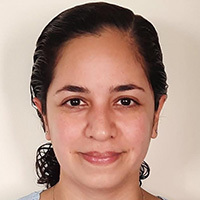
Licda. Carmen Guevara
Analyst, Instituto Universitario de Opinión Pública
Licenciada en Psicología, graduada de la Universidad Centroamericana (UCA). Desde 2010 se ha desempeñado como investigadora en el Instituto Universitario de Opinión Pública. Ha formado parte de los equipos de investigación en estudios realizados por el Iudop sobre temáticas como: transparencia y acceso a la información pública, medidas extraordinarias de seguridad, brechas en la protección de los Derechos Humanos, percepciones ciudadanas sobre el desempeño de la Asamblea Legislativa, motivaciones para la participación electoral de las mujeres en El Salvador, influencia de movimientos religiosos en la participación cívica, y factores objetivos y subjetivos asociados a la cohesión y fragmentación social.
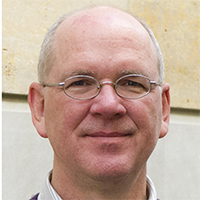
Michael Coppedge
Professor of Political Science, University of Notre Dame
Michael Coppedge is one of the principal investigators for the Varieties of Democracy project (V-Dem), which has measured hundreds of attributes of democracy and governance for most countries since 1900. At the University of Notre Dame he is professor of political science and a faculty fellow of the Kellogg Institute for International Studies. His research interests include democratization and the quality of democracy; Latin American parties and party systems; Venezuelan politics; and comparative politics methodology.
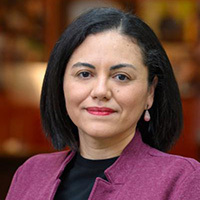
Abby Córdova
Associate Professor, Keough School of Global Affairs
Abby Córdova is an associate professor of global affairs in the Keough School of Global Affairs at the University of Notre Dame, and a concurrent faculty in the Department of Political Science. She is a faculty fellow of the Kellogg Institute for International Studies, and a faculty affiliate of the Notre Dame Violence and Transitional Justice Lab. Córdova’s research examines the consequences of inequality and marginalization for democracy, integrating topics related to crime and violence, gender inequality, economic inequality, and international migration in the context of Latin America and the Caribbean. As an expert on survey research methodology, Córdova’s work relies extensively on public opinion and elite survey data. With a focus on El Salvador, her current research includes a book project that explores how criminal governance makes women more vulnerable to gender-based violence in contexts of militarized public security and its consequences for women’s political engagement.
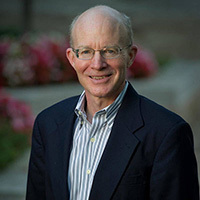
Scott Mainwaring
Eugene and Helen Conley Professor of Political Science, University of Notre Dame
Scott Mainwaring is the Eugene and Helen Conley Professor of Political Science at the University of Notre Dame. His research and teaching focus on democratization and authoritarianism, political parties and party systems, and Latin American politics. His work with Aníbal Pérez-Liñán, Democracies and Dictatorships in Latin America: Emergence, Survival, and Fall (Cambridge University Press, 2013) won the best book prizes of the Comparative Politics section of the American Political Science Association and of the Political Institutions section of the Latin American Studies Association.
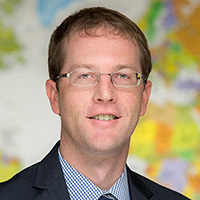
Tom Hare (Moderator)
Senior Associate, Pulte Institute for Global Development
Tom Hare is a senior technical associate within the Pulte Institute's Innovation and Practice Division. In this role, he develops, implements, and evaluates international development programs. Hare's research primarily examines rule of law and human rights programs in Central America. His experience in design, implementation, and evaluation of international development programs includes work funded by the Department of State, U.S. Agency for International Development, United Nations, and private donors.
Originally published at pulte.nd.edu.